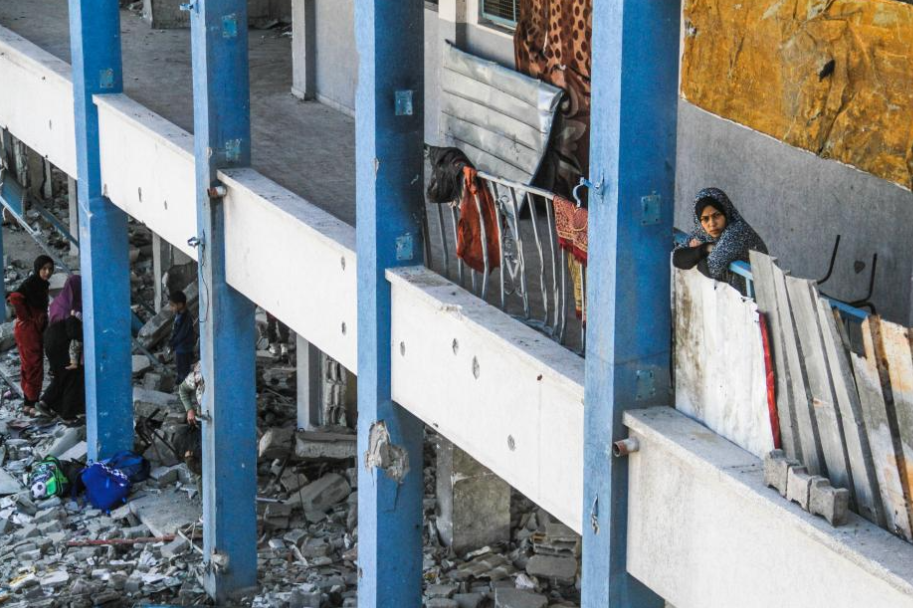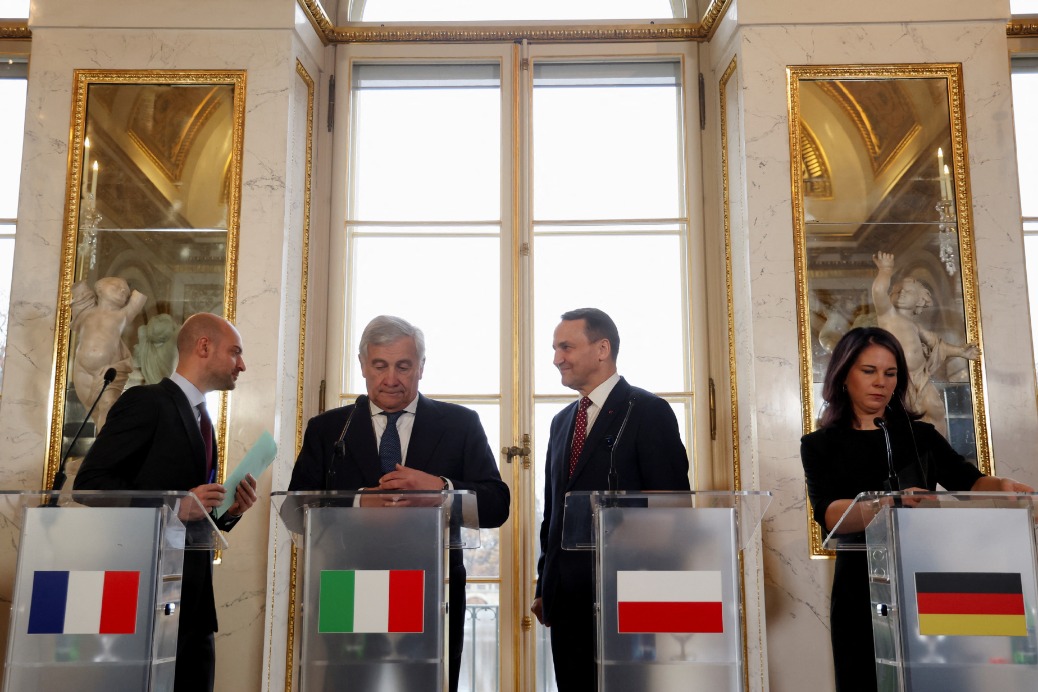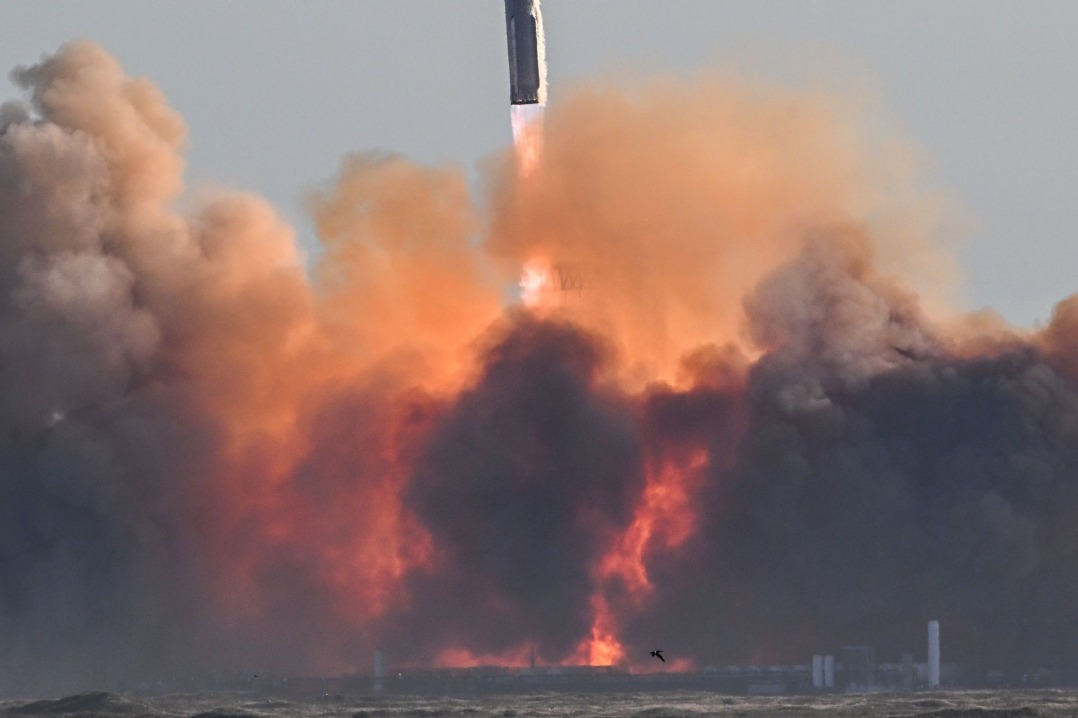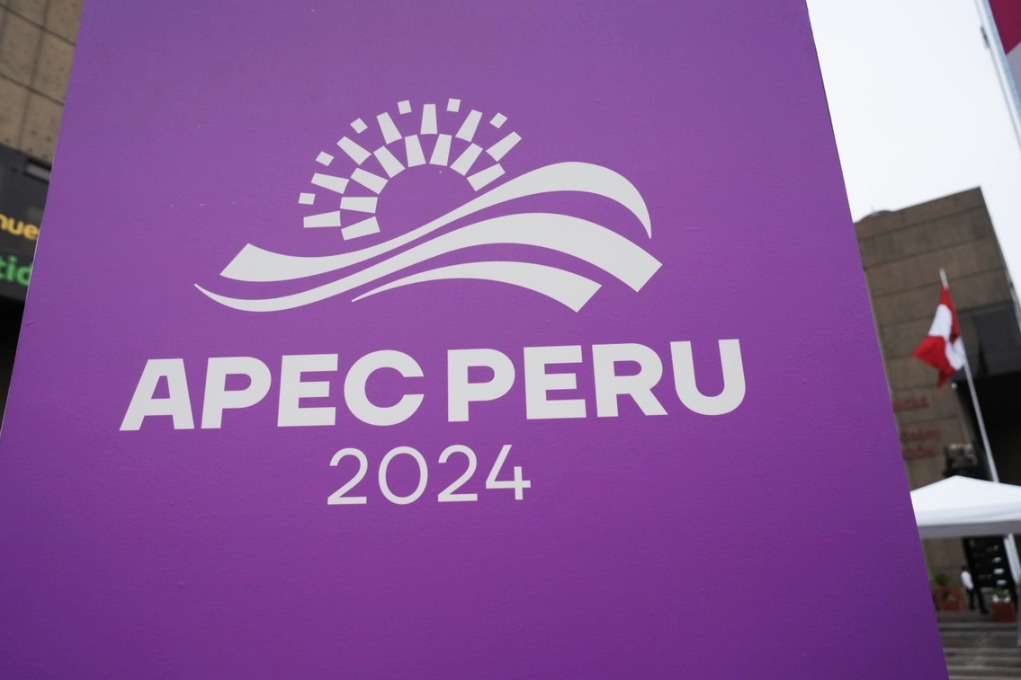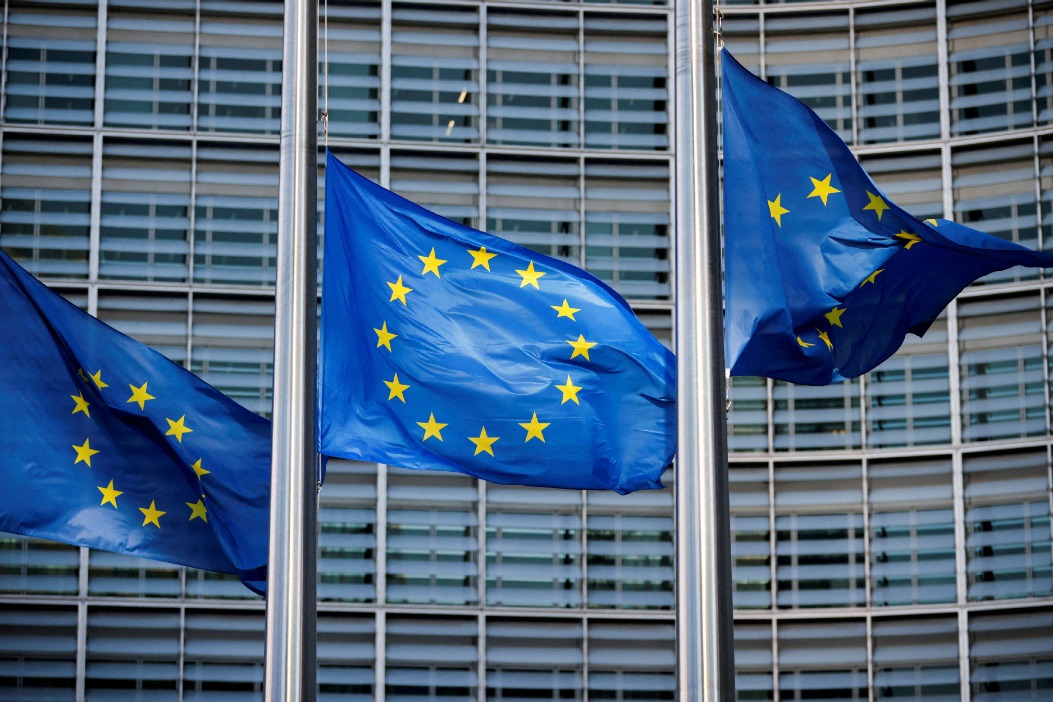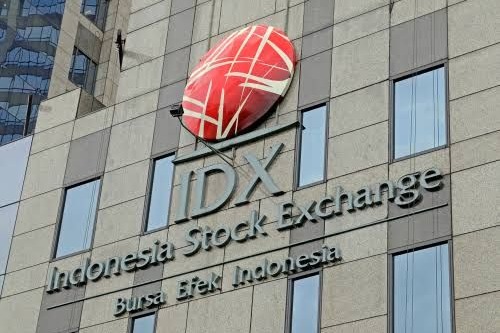FMs of major European countries discuss Ukraine, Europe's future


WARSAW - Foreign ministers of major European countries discussed Ukraine and transatlantic relations in Warsaw on Tuesday, as the Russia-Ukraine conflict entered its 1000th day.
Foreign ministers of Poland, Germany, France and Italy held talks in the Polish capital with the future European Union (EU) High Representative for Foreign Affairs and Security Policy, Kaja Kallas. The Spanish and UK foreign ministers joined the discussions online.
After the meeting, the foreign ministers released a joint statement on issues including bolstering European defense and security by reinforcing the role of NATO, increasing defense spending, leveraging EU economic and industrial power, investing in critical military capabilities, and intensifying military, economic, and financial support for Ukraine.
Polish Foreign Minister Radoslaw Sikorski highlighted the ministers' discussion on how to increase aid for Ukraine. "I am glad to see that the biggest EU states are ready to take over the military and financial burden of supporting Ukraine in the context of potentially reduced US involvement," he said.
The ministers agreed that Europe must take more responsibility for its own security, Sikorski underlined. Europe should strengthen its defense potential, he added, along with maintaining US involvement in European security.
Italian Foreign Minister Antonio Tajani announced that preparations are underway for a joint conference on the reconstruction of Ukraine.
Meanwhile, German Foreign Minister Annalena Baerbock underlined that regarding the United States, the focus should be the development of transatlantic relations, rather than the change of president in America.
The gathering of foreign ministers came after outgoing US President Joe Biden authorized Ukraine to use US-supplied long-range missiles to strike targets inside Russia.
Early on Tuesday morning, Ukraine fired six such missiles at Russia's Bryansk region. Russian President Vladimir Putin has signed a decree approving Russia's updated nuclear doctrine, the Kremlin reported on the same day.
Some European countries voiced caution over Biden's announcement. Slovak Interior Minister Matus Sutaj Estok warned on Tuesday that it would be "very dangerous" if NATO countries were to be drawn into the conflict between Russia and Ukraine.
















